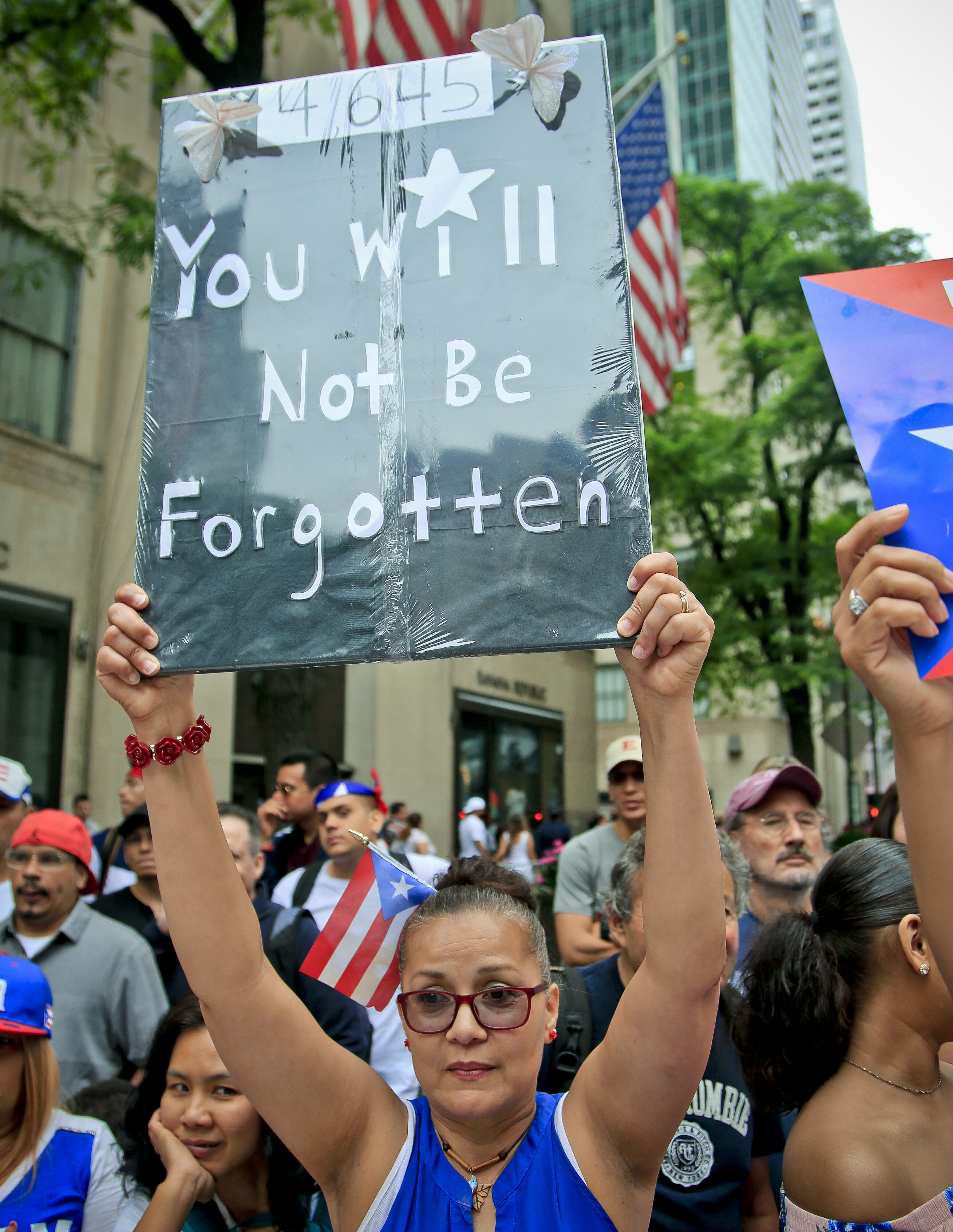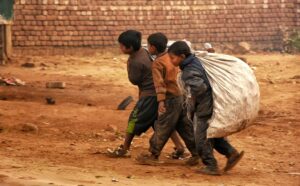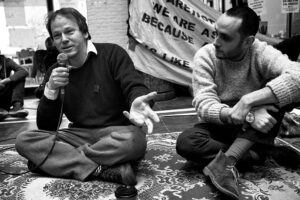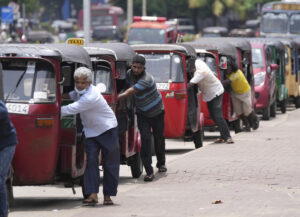Puerto Rican Day Parade Shines Light on Hurricane Devastation
The New York City event points up the continuing struggle on the island, where many are still without electricity and thousands must seek more federal aid. Wanda Feliciano, participating in Sunday's Puerto Rican Day Parade in New York City, holds a sign marking the deaths caused by Hurricane Maria. She was also protesting what demonstrators called the government's poor response to the disaster. "I am representing those [who] have died, celebrating their culture," said Feliciano. "I am here representing who they were and what they stand for." (Bebeto Matthews / AP)
Wanda Feliciano, participating in Sunday's Puerto Rican Day Parade in New York City, holds a sign marking the deaths caused by Hurricane Maria. She was also protesting what demonstrators called the government's poor response to the disaster. "I am representing those [who] have died, celebrating their culture," said Feliciano. "I am here representing who they were and what they stand for." (Bebeto Matthews / AP)
On Sunday, New York City’s Puerto Rican Day Parade focused attention on the destruction caused to the U.S. territory by Hurricane Maria in September 2017. The island continues to struggle, with many Puerto Ricans seeking more aid from the federal government. Louis Maldonado, chairman of the board that oversees the parade, told CBS, “This is a year where Puerto Rico has been devastated. We need to keep that part of the conversation.”
Controversy over the government’s accounting of the damage continues. While the official death toll stands at 64, an independent study by Harvard University published in May in The New England Journal of Medicine found that 4,600 more deaths than usual had occurred in the three months after the hurricane. A third of them were attributed to lack of medical care.
Last Wednesday, more than 100 people displaced by the hurricane traveled to Washington, D.C., to ask lawmakers to activate the Federal Emergency Management Agency’s Disaster Housing Assistance Plan. The program provides rent subsidies to families for apartments. FEMA’s Transitional Shelter Assistance Program currently makes hotel rooms available for 2,300 families whose homes were destroyed. The program is set to end June 30, leaving some families with nowhere to go.
“Those families who remain in hotels will at that point have no additional financial support in the housing side so they will for all intents and purposes become homeless,” said Tara Parrish, lead organizer with the Pioneer Valley Project, a grass-roots community organization in Springfield[, Mass.,] traveling to Washington with the families.
Late last month, Sens. Elizabeth Warren and Ed Markey, both Massachusetts Democrats, introduced legislation that would require FEMA to activate the longer-term housing program for victims of Hurricane Maria.
FEMA provided longer-term housing assistance after other natural disasters, including hurricanes Katrina and Sandy.
“FEMA can simply flip a switch to make this happen,” said Denise Collazo of Faith in Action, a faith-based community organizing group. “For whatever reason, they’re choosing inaction.”
FEMA said in a statement Wednesday that it “continues to provide a variety of housing programs to adequately meet the unique needs of disaster survivors in Puerto Rico that are more timely and effective.” FEMA has provided more than 7,000 families affected by the hurricanes with hotel rooms through the Transitional Shelter Assistance Program.
The agency has aimed to help these families through its Direct Lease program, which makes use of vacant properties in Puerto Rico that either are ready to rent or need minor repairs to make them safe.
“FEMA’s Direct Lease program is being implemented in Puerto Rico and provides the same housing option to disaster survivors directly to the survivor in a quicker, more cost-effective way to provide much needed assistance,” the statement said, adding that Direct Lease “provides greater flexibility directly to the disaster survivor,” compared with the longer-term housing program advocates are calling for.
Advocates have expressed concern over the fact that FEMA’s assistance requires survivors to return to Puerto Rico, which is still in the process of rebuilding. According to reports, 12,000 Puerto Ricans live with no electrical power, and many others have to deal with frequent power failures. Roughly 10,000 small businesses remain closed, and the island is going through a bankruptcy crisis—Puerto Rico has debt totaling $72 billion and owes an addition $50 billion for public pensions.
Your support is crucial...As we navigate an uncertain 2025, with a new administration questioning press freedoms, the risks are clear: our ability to report freely is under threat.
Your tax-deductible donation enables us to dig deeper, delivering fearless investigative reporting and analysis that exposes the reality beneath the headlines — without compromise.
Now is the time to take action. Stand with our courageous journalists. Donate today to protect a free press, uphold democracy and uncover the stories that need to be told.






You need to be a supporter to comment.
There are currently no responses to this article.
Be the first to respond.